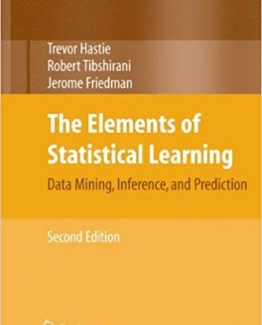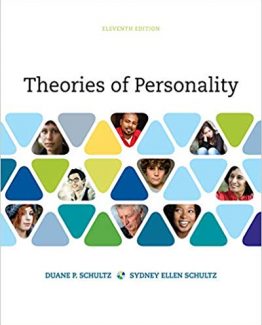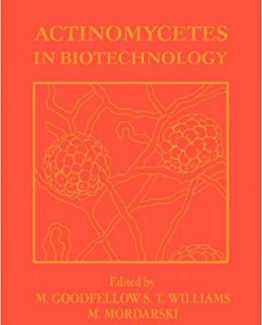Applied Behavior Analysis for Teachers 9th Edition by Paul A. Alberto, ISBN-13: 978-0132655972
[PDF eBook eTextbook]
- Publisher: Pearson; 9th edition (February 18, 2012)
- Language: English
- 480 pages
- ISBN-10: 0132655977
- ISBN-13: 978-0132655972
The market-leading book Applied Behavior Analysis for Teachers gives you what you need to understand to use the principles and practices of applied behavior analysis in the classroom. The content is presented clearly, in a friendly, accessible–even fun–manner. The ninth edition uses classroom-based examples and practices firmly grounded in research. Content is presented in the order of decision-making by a teacher who has a student exhibiting challenging behavior in class or a student who needs to execute a behavior-change project. The text covers identifying target behavior, collecting and graphing data, functional assessment, experimental design, arranging antecedents and consequences, and generalizing behavior change. The importance of ethical considerations in using applied behavior analysis in the classroom is now presented at the beginning of the book to highlight the importance of applying principles and practices responsibly.
For over 30 years, the author team of Alberto and Troutman has written a technically sound, systematically organized and highly-readable text for students of applied behavior analysis, behavior management, and behavior modification courses. The text continues its tradition of aiding students in their understanding of the core concepts of applied behavior analysis, how to apply these concepts in the classroom, and to use the tools and methods appropriately and ethically. Scholarly and empirically based, this market-leading text gives students what they need to understand using the principles and practices of applied behavior analysis in the classroom in a friendly, accessible–even fun–manner.
New to the ninth edition:
-
- Substantially revised text: Research citations no longer interrupt the flow of the text and are gathered together at the ends of paragraphs. The complexity of the language itself has also been revised for greater accessibility.
- Additional examples of and applications for diverse general education inclusive classroom: Clinical examples have been deleted and the chapter-ending discussion questions have been revised.
- Updated information about using applied behavior analysis with students with Autism Spectrum Disorders.
- Additional information on positive behavioral support
- Reordered chapters: The former chapter 12, Responsible Use of Applied Behavior Analysis Procedures, has become chapter 2 which better emphasizes the importance of applying procedures ethically.
- Chapter 9 (former Chapter 8) has been heavily revised: The concept of punishment is acknowledged to be controversial and the multiplicity of viewpoints is addressed.
Table of Contents:
1 Roots of Applied Behavior Analysis 1
2 Responsible Use of Applied Behavior Analysis
Procedures 21
3 Preparing Behavioral Objectives 39
4 Procedures for Collecting Data 66
5 Graphing Data 106
6 Single-Subject Designs 124
7 Determining the Function of Behavior 171
8 Arranging Consequences That Increase
Behavior 211
9 Arranging Consequences That Decrease
Behavior 257
10 Differential Reinforcement: Antecedent Control
and Shaping 293
11 Providing for Generalization of Behavior
Change 328
12 Teaching Students to Manage Their Own
Behavior 349
13 Putting It All Together 365
Appendix 386
Glossary 403
References 408
Name Index 437
Subject Index 449
Paul A. Alberto – After receiving his undergraduate degree from Hunter College in New York City he taught elementary aged students with intellectual disabilities in the south Bronx. While teaching he completed a master’s degree in Special Education: mental retardation at Fordham University. He moved to Atlanta and completed his PhD in Special Education: Severe Disabilities at Georgia State University. His professional career in higher education has been at GSU in the Department of Educational Psychology and Special Education. He is coordinator of the teacher education program in Multiple and Severe Disabilities. He is Co-Director of the program in Applied Behavior Analysis, and is Co-Director of the University Initiative on Language and Literacy. Since 2003 he has served as co-editor of the journal Focus on Autism and Other Developmental Disabilities. Currently he is Principal Investigator on a grant from the Institute on Education Sciences entitled “Integrated Literacy for Students with Moderate and Severe Disabilities.”
Anne C. Troutman – After receiving her undergraduate degree in elementary education from the University of Georgia in 1964 Anne taught elementary grades for 5 years. She completed her Master’s Degree in special education from Georgia State University and taught students with behavior disorders in self-contained and resource settings and served as a crisis intervention specialist and special education supervisor. After receiving her Ph.D. from Georgia State in 1977 she taught graduate and undergraduate students in general and special education at The University of Memphis until her retirement in 2009.
What makes us different?
• Instant Download
• Always Competitive Pricing
• 100% Privacy
• FREE Sample Available
• 24-7 LIVE Customer Support






Reviews
There are no reviews yet.